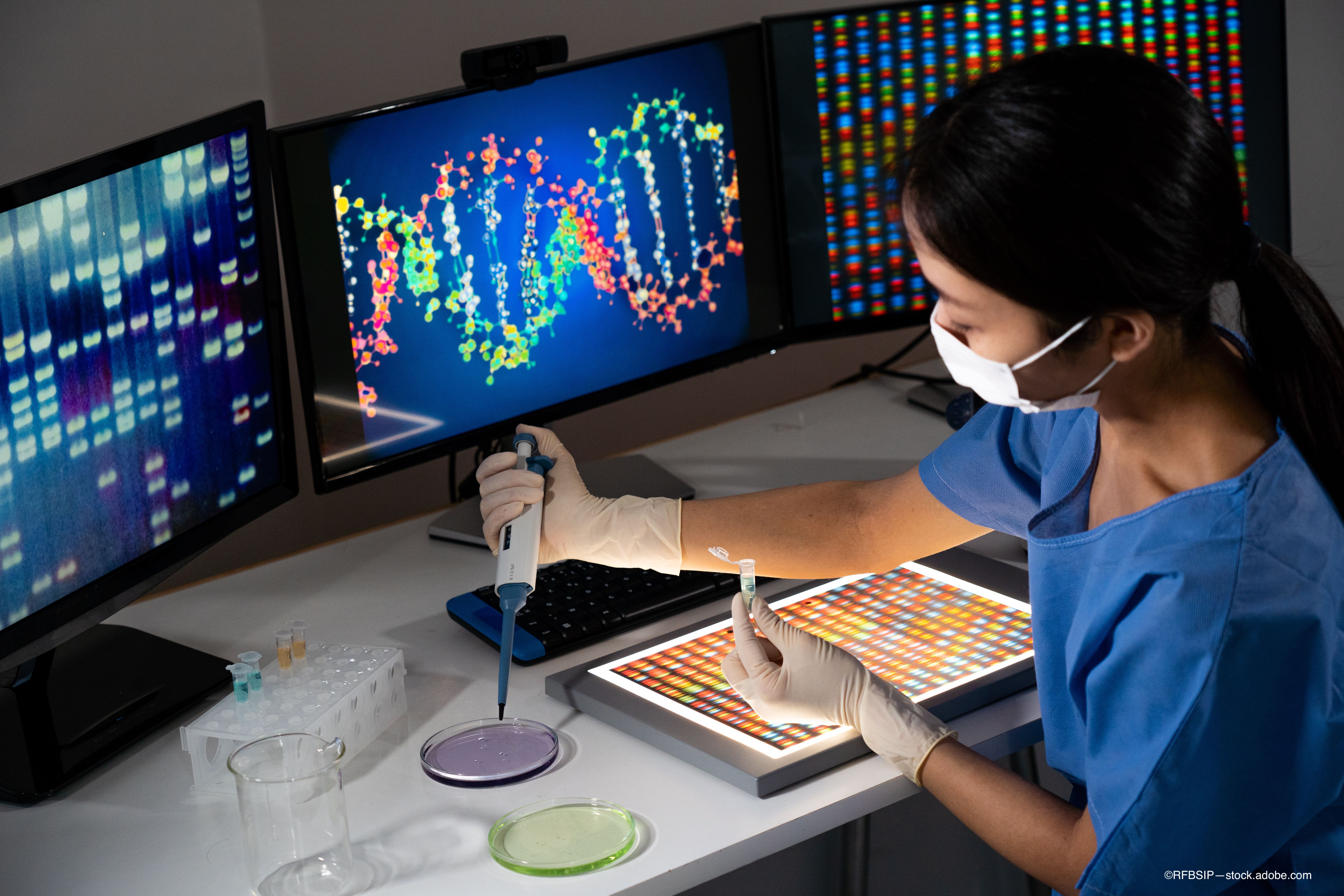Adeno-associated virus gene therapy zeroes in on autoimmune uveitis
Study examines immunomodulatory as a potential long-term treatment option.

Reviewed by Brian Gilger, DVM, MS.
Brian Gilger, DVM, MS

Treating noninfectious uveitis can feel like a losing battle because the available treatments are self-limited due to their adverse effect profile. Establishing a single-dose treatment that can mediate long-term immunosuppression without hampering the patient with adverse effects would fill an important treatment gap for these patients, according to Brian Gilger, DVM, MS, a professor of ophthalmology at North Carolina State University in Raleigh.
Gilger and colleagues conducted an animal study in rats to evaluate immunomodulatory gene therapy as a long-term treatment for noninfectious uveitis. They used intravitreal adeno-associated virus (AAV) gene therapy to test the effects of 2 immunomodulatory transgenes, HLA-G and equine IL10 (eqIL10), to treat a rat model of autoimmune uveitis.
Related: Sustained-release anti-inflammatory therapy is valuable in noninfectious uveitis
Treatment-naive Lewis rats received either 1 intravitreal injection of 3 uL of saline (control) or AAV particles harboring codon-optimized cDNA encoding HLA-G1 and HLA-G5 or eqIL10 (1e9-1e10 vg) 7 days before autoimmune uveitis was induced.
The animals were examined daily for 14 days to evaluate the effect of treatment on the degree of inflammation and to measure the aqueous humor cell counts.
Related: International coalition categorizes 25 subtypes of uveitis using machine learning
In response to the intravitreal injections, from days 10 to 14 after the injections, the investigators observed a significant (P<.05) reduction in the autoimmune uveitis scores and the numbers of aqueous humor cells in the eyes that received active treatment versus control eyes treated with a saline injection. The histologic inflammatory scores also decreased significantly (P<.05) in the active-treatment eyes compared with the controls.
The results of vector genome biodistribution studies indicated that the AAV vector genomes remained in the ocular tissues; however, a very low neutralizing antibody response was elicited against the AAV capsid, Gilger reported.
Related: Optogenetic gene therapy trial begins, first patient dosed
Based on their results, the investigators concluded that 1 intravitreal injection of an AAV encoding an immunosuppressive transgene, either HLA-G or eqIL10, significantly reduced the clinical and histologic inflammation in a well-established model of autoimmune uveitis. They believe that the current results warrant further study of intravitreal delivery of AAV gene therapy for a single-dose treatment of noninfectious uveitis.
Brian Gilger, DVM, MS
E: bgilger@ncsu.edu
The article is adapted from Dr Gilger’s presentation at the American Society of Gene & Cell Therapy 2021 Virtual Annual Meeting. Gilger is a cofounder of Bedrock Therapeutics and serves as a consultant to and speaker for the company, from which he receives honorarium.
Related Content: Ophthalmology | Imaging | Uveitis
Newsletter
Keep your retina practice on the forefront—subscribe for expert analysis and emerging trends in retinal disease management.